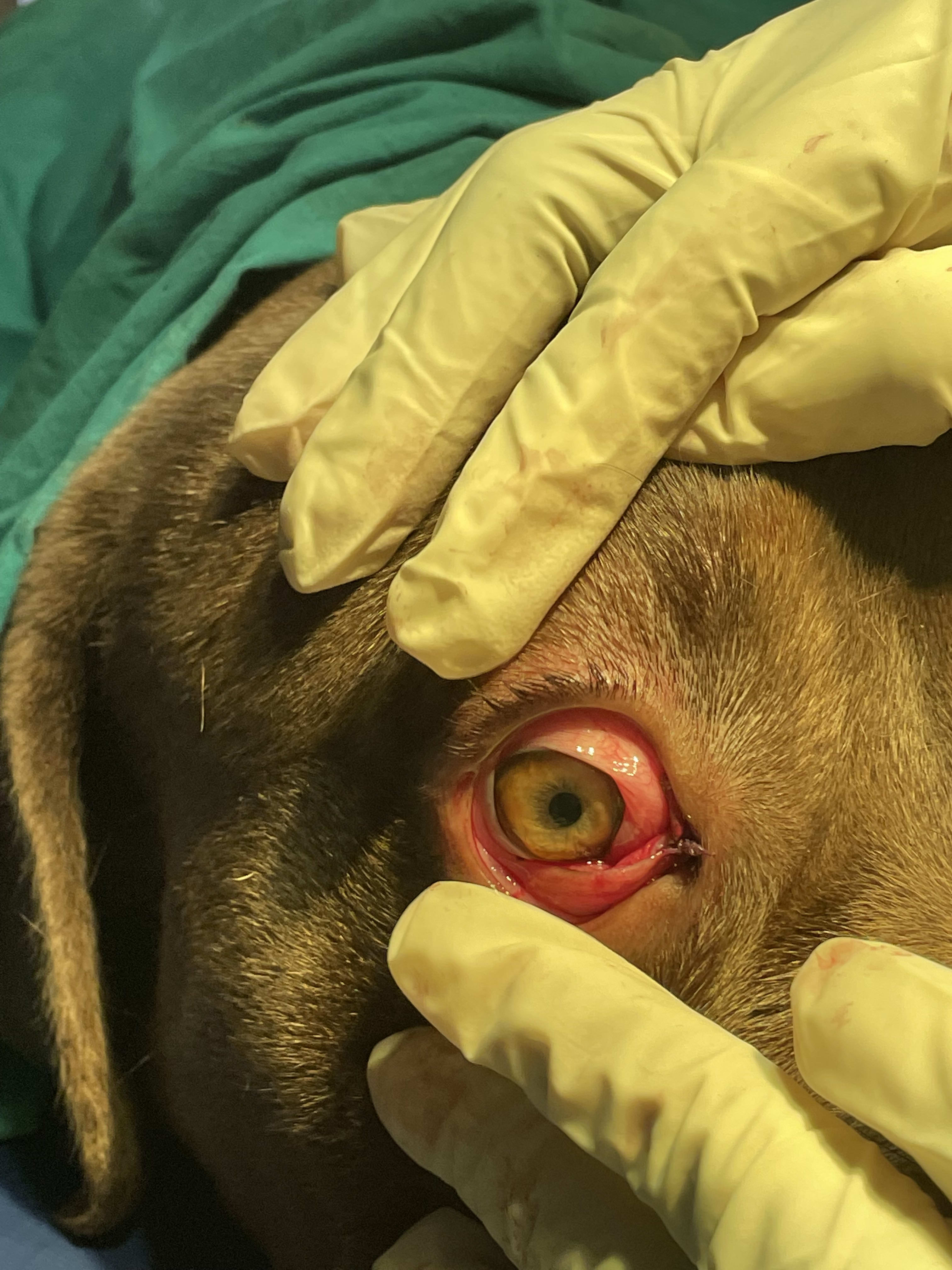Livestock
Livestock Farming: Systems, Solutions & Best Farm Practices
Livestock farming in Nigeria is a cornerstone of the nation’s agricultural sector. It provides food security, employment, and economic growth while supplying essential proteins such as meat, milk, and eggs. With over 18 million cattle, 76 million goats, and 43 million sheep, the industry supports millions of households across rural and urban communities.
However, despite its importance, livestock farming faces systemic issues ranging from poor infrastructure to recurring conflicts between farmers and herders. For Nigeria to unlock the sector’s full potential, sustainable solutions must be implemented. At Mygotovet, we work closely with farmers and animal health experts to provide practical insights that strengthen this vital industry.
What is Livestock Farming?
Livestock farming, also known as animal husbandry, refers to the care, breeding, and management of domesticated animals. These animals provide meat, milk, eggs, wool, and even draft power for farming. Success in animal husbandry depends on proper feeding, breeding, and overall management to ensure animal health and productivity.
Importance of Livestock in Global Agriculture
The livestock sector provides food security, employment, and income to millions of families worldwide. It also contributes to about 30% of the Earth’s surface land use. While it plays a vital role in nutrition and the economy, livestock farming also brings challenges, including environmental impact and land use pressures.
Major Systems of Livestock Farming
Intensive Farming and Its Characteristics
Intensive farming, sometimes called factory farming, focuses on maximizing production efficiency. Animals are raised in confined spaces, often with specialized diets like Total Mixed Rations (TMR). This system ensures higher output per land unit but can increase stress for animals if not well managed.
Extensive and Pastoral Systems Explained
Unlike intensive systems, extensive farming allows animals to graze freely on large tracts of land. Pastoral systems are widely practiced in areas where natural grazing land is abundant. This method often provides healthier conditions for animals but may yield lower productivity per acre.
Sustainable and Technology-Driven Practices
Modern farmers are turning to sustainable methods to balance productivity and environmental care. Advanced technologies like the Internet of Things (IoT), Artificial Intelligence (AI), and precision farming are transforming livestock production. Practices such as rotational grazing improve soil health, reduce erosion, and enhance animal welfare.
RECOMMENDED
Livestock Farming Systems In Africa | MyGotoVet Guide
Top 5 Online Veterinary Platforms in Nigeria [2025]
Guide to Keeping Snakes Away from Poultry Farms
Popular Livestock Species/Breeds and Farming System in Nigeria
1. Cattle Farming in Nigeria (Dairy and Beef Systems)
Cattle in Africa are broadly categorized into beef, dairy, and dual-purpose breeds, each playing a vital role in providing meat, milk, and draft power while supporting rural livelihoods and food security across the continent. Cattle are most commonly raised in Northern Nigeria and production systems include:
- Extensive or Pastoral Cattle Farming: This traditional system allows animals to graze freely across wide lands. While the cost of inputs is low, productivity is equally limited. Nomadic herders, particularly the Fulani, often rely on this method.
- Semi-Intensive or Agro-Pastoral Farming: Here, cattle rearing combines with crop cultivation. Farmers graze cattle on designated fields but also provide supplementary feeding.
- Intensive or Commercial Ranching: Large-scale ranching keeps cattle confined with proper feeding, veterinary care, and housing. Techniques like artificial insemination and zero-grazing are increasingly popular, especially with exotic breeds such as Holstein Friesian for dairy production.
Common cattle breeds in Nigeria include the White Fulani, Red Bororo, Sokoto Gudali, N'dama and Muturu, each valued for their adaptability, hardiness, and suitability for meat, milk, or draft production.
2. Poultry Farming Practices in Nigeria
Chickens play a crucial role in household food security and income generation, offering a fast-growing, low-cost livestock option well-suited to diverse farming systems. Poultry farming remains the most widespread and profitable livestock sector. Production systems include:
- Free Range Poultry Farming: Birds roam freely in rural communities, often serving household consumption needs.
- Intensive Poultry Farming: Birds are kept indoors in cages or pens where feeding, water, and healthcare are controlled. Southern Nigeria has seen rapid growth in commercial poultry because of its efficiency.
Common poultry breeds in Nigeria include the Isa Brown, Black Australorp, and Noiler, known for their resilience, fast growth, and suitability for both meat and egg production.
3. Small Ruminant Farming (Goats and Sheep)
Goats and sheep adapt easily to Nigeria’s diverse environments. Nigeria’s common sheep and goat breeds include the West African Dwarf, Yankasa, Balami, and Sahel, valued for their adaptability to local climates and importance in meat, milk, and cultural practices. They supply meat, and increasingly milk, making them a vital source of nutrition and income for rural households. Production systems like cattle fall into extensive, semi-intensive, and intensive.
Pig Farming in Nigeria
Pig farming is popular in Southern and Eastern Nigeria and provides a fast-growing source of animal protein. Popular pig breeds in Nigeria include the Large White, Landrace, and Duroc, prized for their rapid growth, high feed efficiency, and lean meat quality. Production ranges from small backyard farms to commercial piggeries. However, social and religious factors limit pig production in the North.
Best Livestock Farm Management Practices in Nigeria
🔹 Breeding and Genetic Improvement Strategies
Improved breeds lead to higher productivity and disease resistance. Farmers are increasingly adopting artificial insemination and crossbreeding to develop stronger hybrid cattle and poultry strains.
🔹 Animal Health and Disease Prevention Measures
Vaccination, deworming, and strong biosecurity practices reduce losses caused by parasites and infectious diseases. Immediate quarantine of sick animals, combined with early veterinary consultation, remains critical for farm success.
🔹 Nutrition and Feed Management Systems
Balanced feeding improves growth and productivity. Feed represents the largest cost in pig farming—nearly 85% of expenses—making efficient feeding strategies essential.
Role of Technology in Modern Livestock Production
Digital innovations such as virtual veteriary platforms, IoT sensors, automated feeding systems, and AI-powered breeding programs are helping Nigerian farmers access verified information and data to improve yields while reducing waste.
Major Problems Affecting Livestock Farming in Nigeria
- Farmer-Herder Conflicts and Security Challenges
Competition for land between crop farmers and nomadic herders often escalates into violent clashes. These conflicts damage farmland, cause economic losses, and discourage investment in the livestock sector.
- Climate Change and Environmental Stressors
Heat stress, drought, and unpredictable rainfall threaten animal productivity by reducing feed availability and water resources.
- Disease Burden and Antibiotic Resistance
Parasite infestations, viral outbreaks such as Trypanosomiasis, Peste des petits ruminants (PPR), and bacterial infections like pasteurellosis significantly limit productivity. Resistance to common antibiotics and anthelmintics further complicates disease management.
- Financial and Institutional Weaknesses
Farmers often lack access to affordable credit, leading to underinvestment in quality feed, housing, and veterinary services. Misallocation of agricultural loans also reduces the sector’s efficiency.
- Poor Infrastructure and Limited Extension Services
Many regions lack cold chain facilities, veterinary laboratories, and extension services, creating bottlenecks for farmers aiming to scale their operations.
Practical Solutions for Sustainable Livestock Farming in Nigeria and Africa
- Expanding Financial Inclusion and Rural Banking Systems
Microfinance programs, rural bank deposits, and schemes like the Agricultural Credit Guarantee Scheme Fund (ACGSF) can give farmers reliable access to capital. Monitoring loan use ensures funds support livestock growth.
- Resolving Farmer-Herder Conflicts through Policy and Land Use
Clear policies on land use and grazing reserves, coupled with promotion of ranching, can minimize conflicts. Encouraging the planting of fodder crops also reduces reliance on open grazing.
- Strengthening Technical Capacity and Farmer Training
Farmers benefit from training on feed formulation, disease prevention, and hygienic milking practices. Government and private organizations must expand extension services to rural communities.
- Strategic Approaches to Disease Control and Vaccination
Vaccination campaigns remain the most cost-effective way to protect herds and flocks. Educating farmers on zoonotic diseases, such as anthrax, also prevents cross-infection to humans.
Future of Livestock Farming
Rising temperatures, disease outbreaks, and resource shortages pose risks to livestock. Innovations like Virtual veterinary consultations, climate-smart feeding systems, AI-driven monitoring, and renewable-powered farms will help safeguard the industry.
Building a Sustainable Future for Nigerian Livestock Farming
Livestock farming in Nigeria is both a challenge and an opportunity. By improving management practices, investing in technology, and creating policies that reduce conflict, the country can achieve food security and economic resilience. Farmers, government, and private organizations must work hand in hand to build a thriving sector.
At Mygotovet, we are committed to supporting livestock farmers with knowledge, resources, and veterinary expertise. Whether you are a smallholder or commercial farmer, sustainable solutions are within reach.
Start your journey with Mygotovet today and take your livestock business to the next level. Find a Vet among our verified providers or simply signup to Talk to a Vet Now
Frequently Asked Questions on Livestock Farming in Nigeria
1. What are the main livestock farming systems practiced in Nigeria?
Extensive (nomadic grazing), semi-intensive (crop-livestock integration), and intensive (ranching or commercial poultry systems).
2. How does livestock farming contribute to Nigeria’s food security?
It supplies essential proteins like milk, meat, and eggs, while also generating jobs and income for millions of households.
3. What are the major challenges facing cattle farmers in Nigeria?
They include farmer-herder conflicts, limited access to quality feed, climate change, and inadequate veterinary services.
4. Why is poultry farming popular in Southern Nigeria?
It requires less space, grows rapidly under intensive systems, and meets the rising demand for affordable animal protein.
5. How can smallholder farmers access financial support for livestock farming?
Through microfinance banks, agricultural credit schemes, and community savings cooperatives designed to support rural investments.
6. What diseases commonly affect goats and sheep in Nigeria?
Common issues include ectoparasites/helminth infestations, Viral infection like Peste des petits ruminants (PPR), and bacterial infections like pasteurellosis.
7. How does technology improve livestock productivity and sustainability?
Smart farming tools such as virtual veterinary consultations, automated feeding, IoT sensors, and artificial insemination increase efficiency and reduce losses.
8. How can Mygotovet help Nigerian livestock farmers succeed?
Mygotovet provides expert veterinary advice, connects farmers to modern solutions, and promotes sustainable livestock practices.
Animal Health & Blogs

03 March 2026
0 likesIf you’re planning to relocate or travel with your furry companion, understanding Read More

03 March 2026
0 likesIf you’re searching for the Best Veterinary Practices in Umuahia, Abia ...
Read More
11 February 2026
0 likesValentine’s Day gifts for pet lovers in Nigeria aren’t just cute, they’re thoughtful, useful, and often necessary for vibrant pet health. Whether y ...
Read More